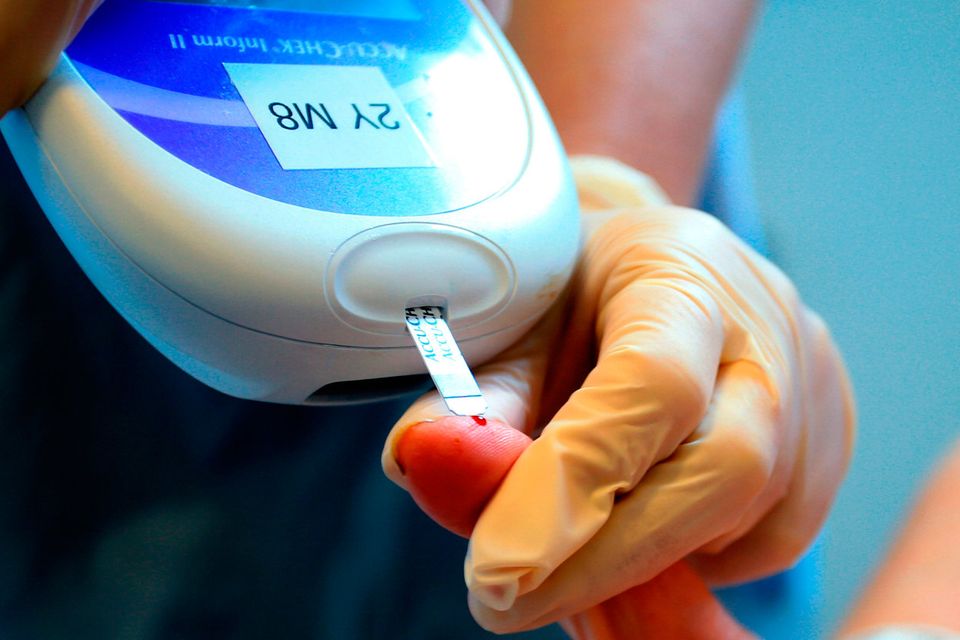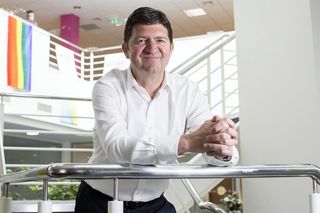Small business initiative takes aim at diabetes in HSE tie-up
'A diabetes sufferer is 22 times more likely to undergo non-traumatic amputation than someone without the disease, while gestational diabetes affects one in six pregnancies worldwide.' Stock photo: PA
The Small Business Innovation Research (SBIR) process enables innovative, young companies to research public sector problems with fresh eyes.
The latest Enterprise Ireland SBIR challenge, in partnership with the HSE, focuses on avoidable complications associated with diabetes, and encourages innovators to come up with solutions. Successful participants receive 100pc funding, the opportunity to work with the HSE on developing their solution and retain the Intellectual Property (IP) rights.
SBIR transforms the traditional buying process, in which problem and solution are broadly specified at tender. Instead, after government departments, public sector organisations and agencies define an SBIR challenge, a call is issued for companies to undertake research and develop a solution that will deliver an improved service to citizens.
The approach has become a global trend, accelerating innovative uses of new and existing technologies.
A successful example is SparroWatch, producers of smart low-cost security cameras. David Tunney, CEO, says: "We weren't trading before the [SBIR] Illegal Dumping Challenge - the initiative has allowed us to take our idea from concept to prototype."
The idea behind SBIR has a successful history in the US, the Netherlands and the UK. Savings attributed to the process in the UK's NHS amount to £30m to date.
In 2017, public procurement in Ireland accounted for 16pc of GDP (€8.5bn) and 250,000 jobs. More use of SBIR by government opens up an internal market to SMEs, creates better value for the public sector and accelerates innovation.
The HSE Challenge targets two areas. Firstly, screening patients for diabetic foot disease, and secondly, reducing the risk of women developing diabetes following pregnancy (gestational diabetes). Applicants can address either or both areas.
A diabetes sufferer is 22 times more likely to undergo non-traumatic amputation than someone without the disease, while gestational diabetes affects one in six pregnancies worldwide. Evidence suggests adequate screening and follow-up can delay or avoid these complications.
Professor Sean Dinneen, consultant physician and HSE clinical lead for diabetes, said: ''This is about HSE clinicians working in a unique way with firms to use technology and digital innovation to ensure that fewer Irish citizens develop avoidable complications of diabetes.
"Usually, as HSE clinicians we have to decide in advance what is the product or service we want to procure. With SBIR, we uniquely present the problem to the firms, and then we can get involved in helping to design the solution."
Challenges come in two fully funded phases (which currently provide up to €200,000 overall). Companies selected for Phase One undertake a feasibility study with feedback from the HSE. A smaller number go to Phase Two, which aims to test and produce well-defined prototypes for manufacture and marketing.
There are 21 SBIR Challenges active in Ireland - illegal dumping, safer cycling and graffiti removal are just some of the areas tackled to date.
The company Fluidedge used the 2016 Dublin Cycling Challenge as a springboard to international success. Its product, the Liberty Bell, is a bicycle bell that records the cycling experience in real time. It is connected by Bluetooth, recording qualitative as well as quantitative data for city planners. The company leveraged its experience developing a prototype with Dublin City Council to win the Colorado International RoadX Bicycle and Pedestrian Challenge in 2017, receiving funding of $75,000.
SBIR has been the catalyst for innovators to make a real difference to society and their own future. David Tunney of SparroWatch advises SMEs "to engage with the SBIR process - it has been a great experience for us".
For more information on HSE's Diabetes Challenge visit the SBIR Briefing Event, Galway Technology Centre, February 5. Register interest at sbirireland@enterprise-ireland.com. Apply for the HSE Diabetes Challenge atetenders.gov.ie (Closing date: February 22). Marguerite Bourke is manager for SBIR at Enterprise Ireland.
Join the Irish Independent WhatsApp channel
Stay up to date with all the latest news















